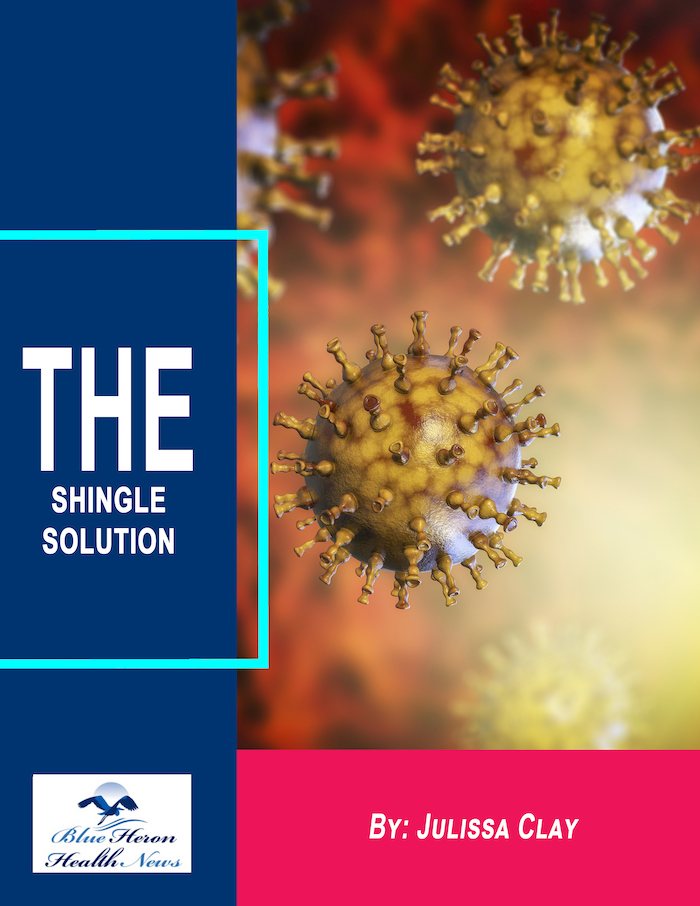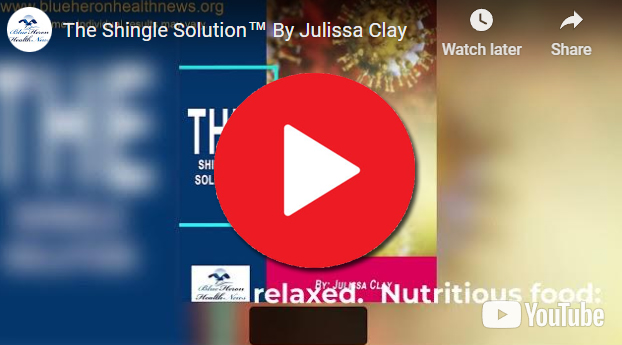
The Shingle Solution™ By Julissa Clay This eBook includes a program to treat the problem of shingle naturally. The author of this eBook, Julissa Clay, a practitioner in natural health, has killed the shingles causing virus completely to overcome the problem of PHN or Postherpetic neuralgia, one of the common complications caused by shingles. This program helps in melting PHN in a few weeks and make shingles a forgotten nightmare.
Can shingles be prevented?
Can Shingles Be Prevented? A Comprehensive Guide
Shingles, or herpes zoster, is a painful condition caused by the reactivation of the varicella-zoster virus (VZV), the same virus responsible for chickenpox. After a person recovers from chickenpox, the virus remains dormant in nerve tissues and can reactivate later in life as shingles. While there is no guaranteed way to prevent shingles entirely, several strategies can significantly reduce the risk and severity of the disease. This comprehensive guide explores the various methods and approaches to prevent shingles, including vaccination, lifestyle modifications, and other preventive measures.
1. Vaccination
Shingles Vaccines:
- Shingrix (Recombinant Zoster Vaccine): Shingrix is a non-live, recombinant subunit vaccine that has shown high efficacy in preventing shingles and its complications, such as postherpetic neuralgia (PHN). It is recommended for adults aged 50 and older and for adults aged 19 and older with weakened immune systems due to disease or therapy.
- Efficacy: Shingrix is more than 90% effective at preventing shingles and PHN. Its efficacy remains high in older adults, even those over 70.
- Dosage: The vaccine is administered in two doses, given 2 to 6 months apart.
- Side Effects: Common side effects include pain at the injection site, muscle pain, fatigue, headache, shivering, fever, and gastrointestinal symptoms. These side effects are typically mild and short-lived.
- Zostavax (Live Zoster Vaccine): Zostavax is a live attenuated vaccine that was previously used to prevent shingles but is less effective than Shingrix. It is administered as a single dose and is no longer available in many countries, including the United States, due to the superior efficacy of Shingrix.
- Efficacy: Zostavax reduces the risk of shingles by about 51% and the risk of PHN by about 67%.
- Suitability: It is not recommended for individuals with weakened immune systems due to its live virus content.
Vaccination Recommendations:
- Adults Aged 50 and Older: The Centers for Disease Control and Prevention (CDC) recommends Shingrix for all adults aged 50 and older, regardless of whether they have had shingles or received Zostavax.
- Adults with Weakened Immune Systems: Shingrix is also recommended for adults aged 19 and older who have weakened immune systems due to underlying conditions or treatments, such as cancer, HIV/AIDS, or immunosuppressive therapy.
Benefits of Vaccination:
- Reduced Risk: Vaccination significantly reduces the risk of developing shingles and its complications, including PHN, which can cause long-term pain.
- Long-Term Protection: Shingrix provides long-lasting protection against shingles, with studies showing sustained efficacy for at least four years post-vaccination.
2. Boosting Immune Health
Healthy Lifestyle:
- Balanced Diet: A diet rich in fruits, vegetables, whole grains, lean proteins, and healthy fats can support overall immune function. Key nutrients that support the immune system include vitamins A, C, D, and E, as well as zinc and selenium.
- Regular Exercise: Physical activity can enhance immune function and reduce stress. Aim for at least 150 minutes of moderate aerobic exercise or 75 minutes of vigorous exercise each week, along with muscle-strengthening activities.
Stress Management:
- Techniques: Chronic stress can weaken the immune system. Practices such as mindfulness meditation, yoga, deep breathing exercises, and progressive muscle relaxation can help manage stress levels.
- Healthy Sleep: Adequate sleep is essential for a robust immune system. Adults should aim for 7-9 hours of sleep per night. Good sleep hygiene practices include maintaining a regular sleep schedule, creating a restful environment, and avoiding screens before bedtime.
Avoiding Immune-Suppressing Habits:
- Quit Smoking: Smoking can weaken the immune system and increase the risk of infections, including shingles. Quitting smoking can improve overall health and immunity.
- Limit Alcohol: Excessive alcohol consumption can impair immune function. It is advisable to drink alcohol in moderation, if at all.
3. Managing Underlying Health Conditions
Chronic Disease Management:
- Diabetes: Effective management of diabetes through proper diet, exercise, medication, and regular monitoring can help maintain immune health and reduce the risk of infections.
- Cardiovascular Disease: Managing heart disease through lifestyle changes, medications, and regular medical check-ups can support overall health and immunity.
Medications and Treatments:
- Corticosteroids and Immunosuppressants: These medications can increase the risk of shingles. If you are on long-term corticosteroid therapy or other immunosuppressants, discuss with your healthcare provider about the risks and possible preventive measures, including vaccination.
4. Early Detection and Treatment
Recognizing Early Symptoms:
- Prodromal Phase: Before the shingles rash appears, individuals may experience pain, itching, tingling, or burning in a specific area, typically on one side of the body or face. Recognizing these early symptoms can lead to prompt medical attention.
- Prompt Treatment: Starting antiviral treatment within 72 hours of the rash onset can reduce the severity and duration of shingles. Common antiviral medications include acyclovir, valacyclovir, and famciclovir.
5. Specific Populations
Older Adults:
- Increased Risk: Older adults are at a higher risk for shingles due to the natural decline in immune function with age. Vaccination is particularly important in this population to prevent shingles and its complications.
Immunocompromised Individuals:
- Higher Vulnerability: People with weakened immune systems, such as those with HIV/AIDS, cancer patients undergoing treatment, and organ transplant recipients, are at increased risk of shingles. Vaccination and other preventive measures are crucial for these individuals.
People with a History of Shingles:
- Recurrent Shingles: While rare, shingles can recur. Vaccination with Shingrix can help prevent recurrence, even in individuals who have had shingles before.
6. Preventing Shingles Complications
Postherpetic Neuralgia (PHN):
- Preventive Strategies: Vaccination with Shingrix can significantly reduce the risk of PHN, a common and painful complication of shingles. Early antiviral treatment and pain management strategies can also help minimize the risk and severity of PHN.
Herpes Zoster Ophthalmicus:
- Eye Involvement: If shingles affects the face and eyes, prompt medical treatment is essential to prevent serious complications such as vision loss. Antiviral medications and consultation with an ophthalmologist are recommended.
Herpes Zoster Oticus (Ramsay Hunt Syndrome):
- Ear Involvement: When shingles affects the facial nerve near the ear, it can lead to facial paralysis and hearing loss. Early antiviral treatment and consultation with an otolaryngologist (ENT specialist) are important.
Conclusion
While there is no guaranteed way to prevent shingles entirely, several strategies can significantly reduce the risk and severity of the disease. Vaccination with Shingrix is the most effective preventive measure, recommended for adults aged 50 and older and for those with weakened immune systems. Maintaining a healthy lifestyle, managing stress, and effectively treating underlying health conditions can also support immune health and reduce the risk of shingles. Recognizing early symptoms and seeking prompt medical treatment can help minimize the impact of shingles and prevent complications. Consulting with healthcare providers for personalized advice and preventive measures is essential for those at risk of developing shingles.

The Shingle Solution™ if you are suffering from shingles then The Shingle Solution can be the best program for you to relieve your pain and itching by using a natural remedy. It describes the ways to use this program so that you can feel the difference after using it as directed. This natural remedy for shingles can also help in boosting your immune system along with repairing your damaged nerves and relieve pain and itching caused by shingles.